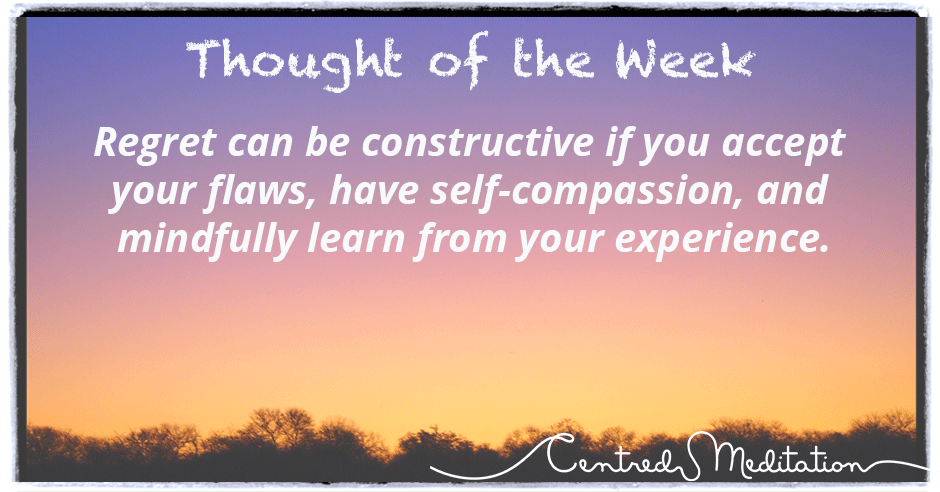We’ve been playing a bit of a mind game these last few weeks which we thought you might want to join in on.
The rules of the game are simple:
- Catch yourself beginning a sentence with “I should have…” and stop yourself in your tracks;
- Decide whether the regret is constructive or not…
- If it’s about something that is beyond your control (externally attributed), then realise that harping on about it isn’t going to solve anything and only leads to more suffering. Abort the sentence;
- If it’s about something that you did have control over, then research shows that regret can actually have a positive influence in making sense of the world, avoiding future behaviors, gaining insight, achieving social harmony, and improving approach. Move to step 3;
- Continue sentence, with caution;
Caution is required because what happens next determines whether the conversation in your head (or out loud) successfully ends here or becomes a running commentary (almost like a broken record player) for the next few hours/days/weeks. Studies show that the fastest way of letting go of past disappointments, embarrassments and failures is to accept your flaws and be kind to yourself. Self-compassion leads to greater self-forgiveness, personal improvement, and self-acceptance. Interestingly enough, this strategy far exceeds that of boosting your self-esteem by focusing on your positive qualities. Be especially aware of the type of regret for an action not taken as it has the potential to drag you into a bottomless pit of ‘should haves, could haves, and would haves’. So, be compassionate, learn whatever lesson you can, and move on!
Winner’s tip: Keep in mind that habits take time to adjust so don’t be too hard on yourself when you end up in that pit! Just dust yourself off and play on 🙂 Let us know how you go!


